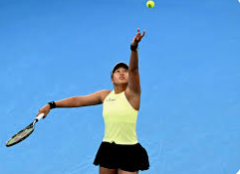We tend not to associate poetry and sport; indeed, we will not be aware of many sportsmen quoting, let alone writing, poetry. However, in a previous article we noted that Alfred Lord Tennyson, the great English Romantic poet, had an impact much later on tennis. (https://www.newsday.co.zw/thestandard/2020/11/08/tennyson-on-tennis) He also had an indirect impact on cricket, not simply because in his poem ‘The Princess’ he wrote that “They boated and they cricketed” but more because his grandson, Lionel Hallam Tennyson, not only played for but also captained England in cricket, in a manner that the current ‘Bazball’ supporters would enjoy.
In another of his poems, ‘Ulysses’, the first Lord Tennyson, Alfred, gave some helpful advice for any aspiring sportsman, especially children in our schools, as he follows the journey of the great hero Ulysses in his later years. As one literary critic comments on this poem, we can learn to confront serious setbacks in life as much as in sport, with “character, companionship and courage”, qualities we have been considering in previous articles. More than that, however, the poem provides coaches with valuable direction and advice as they seek to develop their children.
Tennyson first of all acknowledges that “tho’ we are not now that strength which in old days moved earth and heaven, that which we are, we are.” One of the hardest things for any sportsperson, young or old, is the ability to accept when things do not continue in the positive way that we have encountered and achieved previously. When we lose after winning regularly, it can be hard to accept, but the key to progress, to moving forward even if it is not to the same heights as before, is to accept that this is where and who we are. What happened before has happened; it is no more.
Indeed, Tennyson, goes on to describe this state as “One equal temper of heroic hearts, made weak by time and fate”; the playing field is made level by each of us having the same opportunity and ability to play with heart, even if our physical strength fades somewhat. It is all dependent on us being “strong in will” for that will-power will enable us to do the four further things that Tennyson sees in his hero Ulysses – “To strive, to seek, to find, and not to yield”.
The first and last of these four instructions are similar and sandwich two other intriguing ones. Our children must “strive” (a positive insight) and “not to yield” (the same thing put negatively). Striving has the sense of straining strenuously, persistently, seriously, of fighting vigorously, of giving one hundred percent, maximum and supreme effort, all we have. That needs will; that produces winners. The flesh may be weak but the spirit may remain strong. We must instil that in our players.
Then, put negatively, to reinforce this point, we are to help our children learn “not to yield”, not to give up. There is an old hymn (another form of poetry), which conveys a similar message for our sporting proteges and which expands on it further. “Yield not to temptation, for yielding is sin” is its opening but the writer explains that in not yielding, “Each victory will help you some other to win.” Not yielding to the pressures around us on the sports field will bear fruit in future fixtures. It is a similar thought to that which another poet, Rudyard Kipling, referred in his poem ‘If’ when we are encouraged that “If you can force your heart and nerve and sinew to serve your turn long after they are gone, and so hold on when there is nothing in you except the Will which says to them: ‘Hold on!’”, then we will be “a man”, in other words, a winner. Yield not; do not give in or give up. Hold on.
Sandwiched between these coach’s cries are two instructions that will pay rich dividends on the sports field. Our players must “seek” (as opposed to coaches telling), to look for new ways, to ask questions for themselves, to explore different options, to try new skills. They must do so until they “find”, not being satisfied until they do find, even if it takes a long time.
Hold on! Tennyson earlier alluded to the fact that “Tis not too late to seek a newer world”; it is not too late for us as coaches to change our approach to sport in schools. He notes that “Tho’ much is taken, much abides” and while sport has changed greatly over the years, values must abide. We just need all to remain “One equal temper of heroic hearts”. That is where poetry and sport will meet – heroic hearts, strong wills on a sticky tricky wicket. Hold on; strive, seek, find, yield not.




